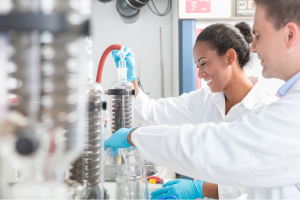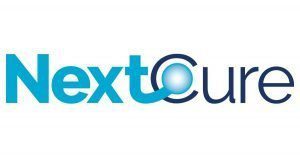
Aperiomics: A Diagnostics Tool for All Seasons
Numerous bacterium, viruses, fungi, and parasites can cause serious infections in people, and Virginia-based Aperiomics aims to catalog each one to provide doctors with the most accurate diagnostics information available.
The company has compiled a massive database that contains the genetic information for every known virus and infectious disease agent. Dr. Crystal Icenhour, chief executive officer of Aperiomics, said the information amassed in the database should help doctors precisely identify the root cause of an infection and provide the best course of treatment. Often, doctors are left guessing as to the source of an infection and will prescribe an assortment of antibiotics or antiviral treatments in hopes that one of the medications will address the problem. But, that shot in the dark kind of approach isn’t always the best course of action. Icenhour pointed to her grandmother as a case in point. Icenhour’s grandmother was chronically ill during her life, but no confirmed diagnosis pinpointed the issue. As a result, Icenhour said her grandmother was called a hypochondriac, which had a profoundly negative impact on her grandmother and caused some family members to discount any symptoms.
“This is a huge issue that people don’t talk about. People are marginalized because we don’t have the right tools to figure out what’s wrong with them,” Icenhour said.
Aperiomics was founded to address hard to solve cases such as Icenhour’s grandmother. Samples from patients suspected of having an infection are sequenced, which creates a genetic blueprint for doctors. Aperiomics provides physicians with a list of microorganisms known to cause infections and includes links to published literature to understand the context around the information. The sourcing of literature also allows doctors to cross-reference and double-check the accuracy of the report.
“We do not provide a diagnostic. We provide the information that helps get the diagnosis made. At the end of the day, it’s the healthcare worker’s job to diagnose,” Icenhour said. “A diagnosis and treatment plan is outside of our scope.”
This new way of testing will benefit patients and doctors and transform the landscape of the healthcare system. More accurate testing will not only lead to better care for patients but will control healthcare costs by keeping patients “out of the revolving doors of doctor’s waiting rooms.”
For the past four years, Aperiomics has primarily been working with patients who pay for their services out of pocket, but that’s changing. Icenhour said the company received clearance to begin testing under Medicare coverage for complicated urinary tract infections. With older Americans, complicated urinary tract infections have a high unmet burden, and coverage for this indication will go a long way to addressing this need, she said. Some patients have dealt with chronic urinary tract infections for decades, meaning the health spend on that one patient has been in the tens of thousands, if not hundreds of thousands of dollars. Providing an accurate source of infection for these patients will provide a significant value proposition, she said. The company hopes this coverage will be available by the end of 2020.
“Keeping people from getting into such a chronic phase is important and can save hundreds of thousands of dollars in temporary treatments,” Icenhour said. “This is how we save the healthcare institution through better innovation. We reduce healthcare costs by innovating better ways to do things more cost-effectively, and they will trickle through all of healthcare.”
Aperiomics is also seeking coverage for other indications. Icenhour said they hope to be granted in-network coverage for fecal tests for gastrointestinal infections and plasma tests for blood-borne issues. Receiving coverage for their testing is crucial for Aperiomics’ continued growth, Icenhour said. She noted that testing is about $1,000 for out-of-pocket coverage, which can be prohibitive for many patients.
Icenhour is confident the growth will come, which will benefit the entire BioHealth Capital Region. She said the company is excited about the innovation taking place in the region, and her company is honored to play a part.
“There’s a lot of innovation that’s coming. If we use it correctly, we’ll be able to make tremendous strides in cost-cutting and provide better patient care,” she added.
While there are a lot of positives going on in biotech, Icenhour acknowledged some negatives. A slight shadow has hung over the diagnostics community with concerns over false positives and negatives regarding COVID-19 tests, as well as the massive fraud charges brought against California-based Theranos and its founder, Elizabeth Holmes. The media focus on those cases have led to some distrust in diagnostics, Icenhour said.
“The reality is that no test is perfect, and there are imperfect people running tests, and there will be a number of people who don’t get the correct answer. The media has focused on the negative attributes of diagnostics and created skepticism of diagnostics. It’s going to be correct more than a majority of the time,” she said.





